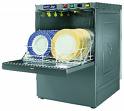Posted by Teresa on April 30, 2010 under Landlord and Tenant FAQs, Landlord Tips | 
 Let’s say you’re a hands-off landlord, who keeps an eye on things outside your rental units; but generally, you don’t go inside until and unless you’re called upon to repair or replace something.
Let’s say you’re a hands-off landlord, who keeps an eye on things outside your rental units; but generally, you don’t go inside until and unless you’re called upon to repair or replace something.
If you’ve ever been surprised by the condition of your rental unit after a tenant moves out, perhaps you should consider inspecting your rental properties more often. Your lease probably stipulates that you are to be given access to the property with proper notice—so before barging in on your tenants, check your local and state laws.
Here are five reasons to inspect rental properties on a regular basis:
1. To see how many people actually live there. If you’re not around to check, who’s going to prevent unscreened tenants from living in your property? You might not ever know that your tenant, the sole lessee who pays the rent every month, actually has 3 friends living in your 1-bedroom apartment. Friends staying over are one thing, but you have the last word on who is allowed to live in your rental unit.
2. To check for undisclosed pets. The Internet is full of posts by tenants who aren’t supposed to have pets and hide them when the landlord stops by; or tenants who are approved for one cat, but have four. What about the 15-pound dog you approved that’sbeen replaced with a 75-pounder?
3. To check for illegal use of your property. Your tenants could be running a business from your rental property—from day care centers to illegal meth labs—and you need to know what’s going on. After all, you are liable for your tenants conduct and activity. Don’t find out when it’s too late that illegal commerce is taking place on your property.
4. To verify proper use of plumbing and electrical systems. Again, you don’t want a fire to be your tip-off that tenants have overloaded electrical outlets. And that small drip under the sink? If nobody tells you about it, you might soon be replacing the kitchen subflooring.
5. To replace smoke alarm and CO2 alarm batteries. Smart landlords keep spare batteries in their toolkits. Replacing worn out batteries can save lives.
From plumbing leaks to illegal drug activity—you truly never know what you’ll discover when inspecting your rental units. Preventing property damage and even loss of life is worth the time and effort involved, so call your tenants and schedule an inspection today!
Posted by Teresa on April 26, 2010 under General | 
 In the home-building game, smart competitors are paying attention to what women want. And in a competitive rental market, property owners, managers, and landlords should, too.
In the home-building game, smart competitors are paying attention to what women want. And in a competitive rental market, property owners, managers, and landlords should, too.
Women are signing home-buying contracts in larger numbers than ever before—up to 25% of all U.S. home purchases, according to the National Association of Realtors. If women are buying more homes, it makes sense that they are renting more homes, too.
So what do women look for when considering a new place to live? It can vary, of course, depending on the area, her lifestyle, and her needs. But builders who are training to become “certified” in women’s housing needs are reporting the following as big plus signs that women want:
- Walk in closets: a must for every bedroom.
- Closets that pull double-duty: gift-wrapping or craft stations are a big hit. Simple upgrades like cubbies, drawers, and a few big dowels that serve as wrapping paper rollers are easy and appreciated.
- Nice-looking hardware on cabinets and drawers: contemporary, clean, and heavy hardware lasts and looks great.
- Security systems: motion detectors and alarms help women feel safer in their homes.
- Granite kitchen countertops: higher-end counters can help move a rental home from “for lease” to “lease signed” faster.
- Plenty of bathroom storage: this includes “hidden” storage for easy access to everyday products like hair dryers, as well as for keeping reading materials out of sight.
- Contemporary light fixtures: look up. If you see cheap-looking, 1980s lights, replace them quickly!
- Quiet ceiling fans, bathroom fans, and dishwashers: women like peace and quiet, and “whispering” fans and appliances are everywhere these days, so why not provide them?
- “Drop zones” where groceries can be placed just inside the kitchen door make good sense.
Not all rental homes are suited to such upgrades. But if you are targeting the section of the population who can afford a higher-end rental, you might be surprised at the simple things you can do to your property to make it more attractive to women renters.
And, it’s certainly true that many men want these same features in their homes, too. Many of these upgrades are just nice design features that appeal to everyone. Look through your vacant rentals and see about making a few smart upgrades that will target new tenants!
Pre-screen all tenants as part of your standard application process. Background and credit checks will help ensure you rent to qualified tenants. For more landlord resources, including forms and information on tenant screening, turn to E-Renter.com.
Posted by Teresa on April 23, 2010 under Housing Trends, Landlord and Tenant FAQs | 
 Are pets welcome in your rental properties? If so, you may have noticed more tenant applicants who are moving their pets along with their kids and furniture. Pet ownership is up in the United States—and so is the percentage of rental units that are pet-friendly.
Are pets welcome in your rental properties? If so, you may have noticed more tenant applicants who are moving their pets along with their kids and furniture. Pet ownership is up in the United States—and so is the percentage of rental units that are pet-friendly.
But one reason for more pet-owning rental applicants may be the increase in foreclosures in the US. A typical track for pet owners is to get that first dog or cat when they buy their first home. But what about after they lose their job and their home—and must return to a rental lifestyle? Many are finding their pets are not welcome at rental units that otherwise work—and often, these socialized, housebroken family pets are being abandoned in shelters.
The rental market is difficult enough right now—why not remove one barrier to filling those vacant homes and apartments that are not making you any money? If you are a landlord who doesn’t accept pets, why not reconsider that policy? Studies show that allowing pets helps fill vacancies—so it’s good for business. And if you create a solid rental pet policy, you may find that the reasons you weren’t accepting pets (noise, damages, liability) were not valid after all.
Besides, it’s bad enough for a family to lose their home, for kids to move away from their neighborhood friends, and possibly switch to a new school. But it’s even worse when the comfort and companionship of a beloved pet is taken away, as well. Pet owners who are allowed to bring these family members along to a new rental are often so grateful, they are more than willing to agree to even the strictest of pet policies.
We’ve written about pet policies before. Check out the basics, and consider allowing pets in your rentals. You might find that with a large enough pet deposit to cover possible damage, plus clear rules and appropriate consequences established up front, pets in your rental properties can work for everyone!
Posted by Teresa on April 20, 2010 under General | 
 Congratulations—you have a new tenant for your just-vacated rental unit. And you have very little time to get it ready before move-in day. Here’s a handy checklist to follow, with every detail covered:
Congratulations—you have a new tenant for your just-vacated rental unit. And you have very little time to get it ready before move-in day. Here’s a handy checklist to follow, with every detail covered:
- First, make sure any trash or property left behind by the previous tenant is removed. Whether you hold it for the previous tenant to pick up, trash it, or donate it is up to you.
- Check the plumbing, heating, and A/C systems. Turn on every faucet, let the water run for few minutes, then turn it off. Make sure there are no leaks. Check around toilets, the dishwasher, and the garbage disposal, too. Be sure thermostats, filters and vents are working properly.
- Change the locks, if necessary. Some landlords never change locks between tenants—others always do. Depending on your situation, either install new locks, have the existing locks re-keyed, or just check the locks to make sure they work properly.
- Turn on appliances. Check the stove—does every burner heat up? Does the oven put out heat? Are the racks still there? How about the broiler pan? Also, run the dishwasher through a complete cycle—make sure it doesn’t get hung up or leak. Check the refrigerator and freezer to make sure they are cold, now warm. If your rental unit has a washer and dryer, turn them on too. Make sure the washer does not leak, and the dryer is properly vented.
- Check cabinet and drawer pulls in the kitchen and bathroom. Are any missing or loose?
- Look for torn or missing window screens. Check the windows, too. They should open and close easily. Locks must operate easily. Think of your tenants’ ability to open sticky windows or unclasp a stiff lock. In an emergency, windows and locks must operate smoothly and easily.
- Clean, clean, clean. Whether you do it yourself or hire an outside firm, clean the rental unit thoroughly. Give the toilets and tubs, showers, sinks, mirrors, and floors in the bathrooms a good scrubbing; same for the stove and sink, countertops and refrigerator, tile and flooring in the kitchen; then, clean windows and sills, baseboards and carpeting throughout the rest of the house or apartment.
- Check the storage area, shed, or garage—make sure there is no trash, dirt, or spider nests lurking behind. Ditto for outdoor living spaces, like balconies or patios.
- Check smoke and CO2 detectors for proper operation. Make sure fire extinguishers are in place.
- Finally, provide a new roll of toilet paper and paper towels—usually the first things people need in a new place. Your tenant will appreciate the thoughtful touch.
If you’re able, an inexpensive plant is a great welcome gift for your new tenant—and will start your relationship off on the right foot.
Posted by Teresa on April 16, 2010 under Landlord and Tenant FAQs, Landlord Tips, Rents and Deposits | 
 Ask ten landlords about rent due dates and last charges, and you’ll probably get ten different answers—none of them wrong. The thing about running a rental property business is that you get to establish your own procedures and practices to suit your needs—within the limits of federal, state, and local laws, of course. And if they don’t work for you, you can always change them (your procedures, not the law)!
Ask ten landlords about rent due dates and last charges, and you’ll probably get ten different answers—none of them wrong. The thing about running a rental property business is that you get to establish your own procedures and practices to suit your needs—within the limits of federal, state, and local laws, of course. And if they don’t work for you, you can always change them (your procedures, not the law)!
Here we present the results of an informal survey we conducted among four landlords we know:
Landlord #1: This landlord is a stickler for rules. Rent is due on the 1st of the month. It’s late on the 2nd, which is when he posts his pay or quit notice. He doesn’t mess around—and he has excellent cash flow numbers to back up his policy. “A grace period means rent isn’t due until the grace period is over,” he says. Using an online rent payment system helps—all of his tenants arrange to pay their rent online on the 1st of each month.
Landlord #2: Rent is due on the 1st, and a 10% late fee is tacked on the 4th. Each day after, $10 more is added to the late fees. The eviction notice, however, is posted on the door on the 3rd of the month—to encourage payment.
Landlord #3: With many older tenants who depend on Social Security and Section 8, this landlord knows that rent due on the 1st doesn’t work. So, while rent is due on the 1st, there is a grace period until 5 p.m. on the 4th. On the 5th, the 3-day eviction notice is posted; if rent is paid during that time, the landlord adds a $50 late fee.
Landlord #4: This landlord wins the “flexibility” award. Rent due dates are negotiated with each tenant during the lease signing, depending on when the tenant can pay each month. Some have Social Security arriving on the 8th of the month, so that is when their rent is due. Others are paid on the 1st and 15th of the month, so the rent is due on the 2nd. Still others want to pay out of the second paycheck, so theirs is due on the 16th. All of these due dates would cause some landlords to pull their hair out—but this woman says when it comes to money that is owed to her, she can easily keep track of it.
The most important advice these landlords give is to check your local laws—you may not be able to charge a late fee at all, and many states will dictate when you may post an eviction notice.
Posted by Teresa on April 13, 2010 under Landlord Tips | 
 Becoming a landlord is not for everyone. A few of the attributes one needs are patience, people skills, and good business practices—and there is still no guarantee it’ll work out.
Becoming a landlord is not for everyone. A few of the attributes one needs are patience, people skills, and good business practices—and there is still no guarantee it’ll work out.
But if you’re thinking about buying your first rental property, the same factors that most landlords consider before diving into the business apply to you, too. Here are a few reasons to consider investing in rental property:
You want a diversified investment portfolio. Ask your financial advisor (preferably a professional, not your brother-in-law!) how rental property would fit into your investment mix. Diversification can help you protect your assets.
You want additional income. Most rental property owners are middle-class working people who decide another income source would be beneficial. It takes time to manage a rental property business, but you can do it part time and keep your day job. And who knows? If you’re successful, you can always work into making your rental business a full-time venture.
There are tax advantages. Again, check with your tax professional, but real estate is one of the most favored investments, tax-wise. A few benefits are deductible expenses, depreciation write-offs, and favorable capital gains tax rates. Writing off depreciation alone can offer a large tax break against annual cash flow.
In the long run, real estate holds value. Despite the housing bubble the US recently experienced, depreciating home values and foreclosures, over the long term, rental properties have held their value through all the boom and bust housing market cycles. Of course every business has up periods and down periods, and rental property is no exception. Think long term, and be cautious.
Investing in rental property can help you in retirement. Done well, and with a thought-out strategy, real estate investment can augment your retirement fund. As with any investment, the earlier you begin, the better your results will be. Think about holding properties for 20—30 years, not 5. Think tortoise—not hare—when it comes to making decisions about rental property as an investment.
The contents of this article are intended for general information purposes only, and should not be relied upon as a substitute for obtaining tax advice applicable to your situation.
Posted by Teresa on April 10, 2010 under Housing Trends, Landlord and Tenant FAQs, Landlord Tips | 
 In 2007, the U.S. Census Bureau reported 62% of U.S. households used the Internet in their home. That’s an enormous increase from 18% in 1997, the first year Internet use was tracked. 82% of those users reported having high-speed access, and 17% reported use of a dial-up connection. By October, 2009, some reports stated that Internet-using households in the U.S. increased to 69%.
In 2007, the U.S. Census Bureau reported 62% of U.S. households used the Internet in their home. That’s an enormous increase from 18% in 1997, the first year Internet use was tracked. 82% of those users reported having high-speed access, and 17% reported use of a dial-up connection. By October, 2009, some reports stated that Internet-using households in the U.S. increased to 69%.
It’s clear that the majority of American households use the Internet. And, the majority of those users have high-speed access. Demand has been overwhelmingly established. The only question is who pays for it?
Free Internet service is a common tenant perk. In some areas, it’s a given that a rental condo or apartment will come with free Internet—even though it might be bundled into the rent. In other markets, tenants are expected to pay for all of their utilities themselves—including Internet service.
And even though the first quarter apartment rent report showed promising results in some markets, things are still tough in the rental property business. Plenty of competition means owners continue to create incentives to attract good tenants. Is providing Internet service a good move?
Look at your market. Survey Craigslist.org and other online listing services for rental housing offers in your category. If the majority of single-family rentals do not brag about free Internet, you might need to provide it in yours. But, if you own an apartment building near your local college campus, and everyone else in the For Rent category is offering free Internet, you might have just found the reason your rentals are not filling up fast enough.
Check with your local Internet service provider about the cost of wireless service. Modem leases and monthly charges vary. Ask about security, too—especially if you have a duplex or multi-family housing situation. You don’t want a situation where tenants are vulnerable to stolen information—and you don’t want to provide free Internet to the entire neighborhood! Your ISP should be able to set up a secure system for your rental units quickly.
Whether you pass the cost along to your tenants or not probably depends on the cost, right? Still, hearing “free Internet” might be the tipping point that makes a potential tenant a year-long lease-signing tenant. And if you’re in need of some more of those, you might want to at least consider providing free Internet.
Posted by Teresa on April 6, 2010 under General | 
 U.S. apartment rents rose from the fourth quarter of 2009 to the first quarter of 2010, by a tiny 0.1% for asking rents and 0.3% for effective rents. This is the first quarterly effective rent increase since the third quarter of 2008, according to a Reis, Inc. report released today. When effective rents (which include perks like free rent and utilities) increase, it suggests that landlords are actually making fewer concessions to tenants—and they are paying off.
U.S. apartment rents rose from the fourth quarter of 2009 to the first quarter of 2010, by a tiny 0.1% for asking rents and 0.3% for effective rents. This is the first quarterly effective rent increase since the third quarter of 2008, according to a Reis, Inc. report released today. When effective rents (which include perks like free rent and utilities) increase, it suggests that landlords are actually making fewer concessions to tenants—and they are paying off.
While effective rent was up from the previous quarter, it was still down 2.3% compared to the first quarter of 2009. However, that’s much better than the 5.6% decline we saw from 2008’s to 2009’s first quarter. This dramatic change indicates a reversal in rent decreases.
Strong markets that saw rent increases include Miami, New York City (the most competitive apartment market in the U.S.), Colorado Springs, Washington, DC, San Antonio, and Dayton, OH. Continued struggles were seen with lowered year-over-year rents in Las Vegas, San Jose, and San Francisco.
In Miami, effective rents for the first quarter gained 1.6% to $1,008 per month, and in New York, the gain was 0.9%, to $2,667 per month.
Vacancy rates remained unchanged—at the record level of 8%—during the first quarter. However, no increase can a sign the market is at or approaching the bottom of the vacancy pit and recovery is on the horizon. In New York City, vacancies even fell 0.1% to 2.8% from the previous quarter.
What about new construction? Well, 22,000 new apartment units opened in 2010’s first quarter, and their vacancy rate was a whopping 52.8%. And in 30 of the 79 markets studied, vacancies rose. But large investors are again looking at developing apartment properties—perhaps anticipating increased demand for next year.
Looking at the overall 1st quarter picture, it’s much brighter than reports were throughout 2009, so it’s possible that the apartment market will be on its way to recovery this year—as long as the economy picks up some steam, and some jobs.
Pre-screen all tenants as part of your standard application process. Background and credit checks will help ensure you rent to qualified tenants. For more landlord resources, including forms and information on tenant screening, turn to E-Renter.com.
Posted by Teresa on April 2, 2010 under Landlord Paperwork and Forms, Landlord Tenant Lawsuits, Tenant Screening & Background Checks | 
 Our last post contained a warning to landlords that what you say can come back to haunt you. In other every day activities, like accepting or rejecting new tenants, landlords must also take care to know and follow all applicable laws—because it protects you and your business from liability.
Our last post contained a warning to landlords that what you say can come back to haunt you. In other every day activities, like accepting or rejecting new tenants, landlords must also take care to know and follow all applicable laws—because it protects you and your business from liability.
Take discrimination. The Fair Housing Act is very clear on what constitutes discrimination: denying housing to an applicant based on race, gender, family status, country of origin, religion, age, sexual orientation, or disability. Still, depending on how a rejection is handled, there is always a chance that a discrimination claim could be filed by a rejected tenant.
How can landlords avoid such claims? First, make absolutely sure that you have a rock-solid reason for the rejection—and back it up with paperwork. Second, communicate the reason to the applicant. Don’t just say, “I found a better tenant,” or “I rejected your application.” The tenant could make up his own reasons for the rejection, including his race or religion.
Establish your minimum standards for approving tenant applications, and apply them to every single applicant. Treating everyone equally is a cornerstone of good landlord practices. Accept the first qualified applicant for a rental unit, after applying your standards to each interested party.
Full disclosure to all applicants up front is a good idea. Your lease application should convey your standards, as in the following examples:
- That each adult who will live in the rental unit must fill out an application and be approved.
- That a minimum income level is required to rent the unit.
- Employment history will be checked, and a minimum of six months at the applicant’s employer is required.
- That previous rental history will be taken into consideration, including timely rent payments, keeping property in good condition, and fulfillment of previous leases.
- That a tenant credit check and criminal background screening will be conducted on all applicants.
If you have additional requirements, add them to the list. And of course, your application should state that you do not deny the right to rent or lease property based on race, gender, family status, country of origin, religion, age, sexual orientation, or disability.
With this information up front, applicants will know what basis they can be rejected on. When you do reject a tenant applicant, be sure to explain your reasons in writing, and supply a copy of the credit report, as required by law.
 Let’s say you’re a hands-off landlord, who keeps an eye on things outside your rental units; but generally, you don’t go inside until and unless you’re called upon to repair or replace something.
Let’s say you’re a hands-off landlord, who keeps an eye on things outside your rental units; but generally, you don’t go inside until and unless you’re called upon to repair or replace something.







